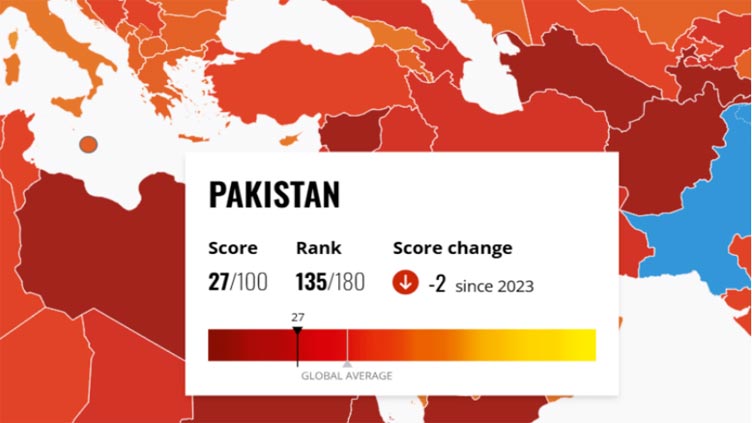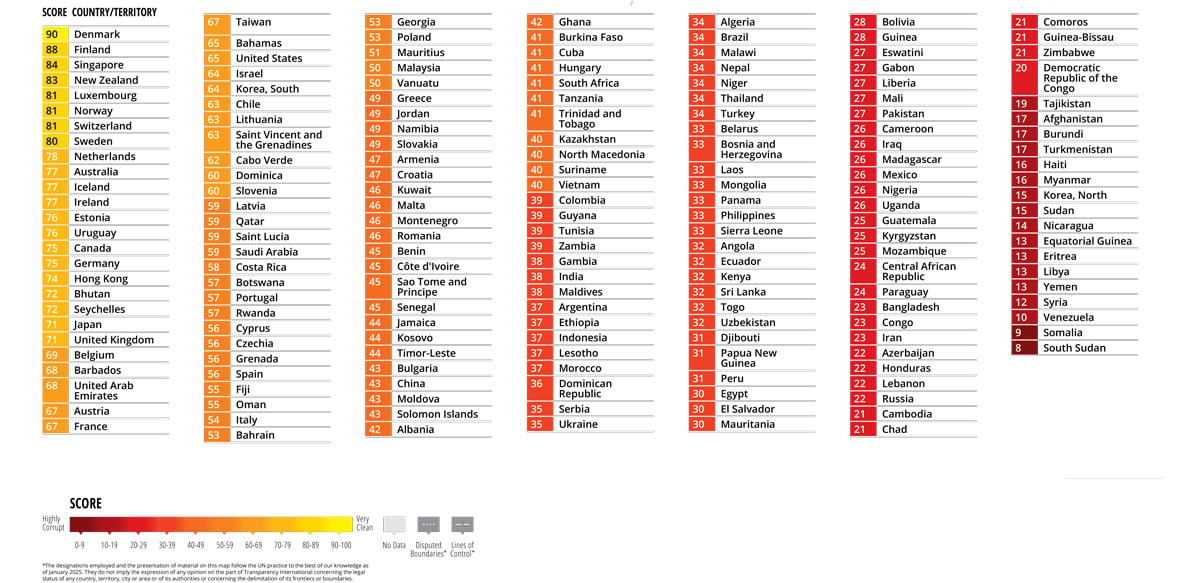Pakistan's corruption ranking drops two points in Transparency International's 2024 report

Pakistan
Pakistan’s score fell from 29 in 2023 to 27 in 2024
LAHORE (Dunya News) - In the latest Corruption Perception Index (CPI) released by Transparency International, Pakistan has slipped two positions, ranking 135th out of 180 countries, down from 133rd in 2023.
The report, which evaluates the perceived levels of corruption in the public sector, assigns a score on a scale of 0 to 100, where 0 indicates high corruption and 100 represents a corruption-free environment.
Transparency International Pakistan (TIP) emphasised that while the CPI is compiled annually by Transparency International Berlin, TIP does not influence the data collection or the calculation of the country’s score.
TIP Chairperson Justice (retd) Zia Perwez pointed out that in 2024, the CPI scores of nearly all countries in the region region, excluding Oman, China, Turkey, and Mongolia, have dropped. Pakistan’s score fell from 29 in 2023 to 27 in 2024, leading to a two-spot decline in its global rank.

“This decline reflects a broader regional trend, but Pakistan is one of the few countries that is still holding steady amid these challenges,” said Justice Perwez.
The Transparency International report also highlighted the troubling persistence of high corruption levels worldwide.
The global average remained stagnant at 43 out of 100, with over two-thirds of the countries scoring below 50. The findings underscored the urgent need for stronger action against corruption, especially in light of the global climate crisis.
The report warned that corruption was a significant barrier to effective climate action, making the fight against climate change even more challenging. “Corruption exacerbates the climate crisis, and it is critical that the international community confronts the connection between the two issues,” said Transparency International.
The ongoing decline in global anti-corruption efforts signals the need for concrete, immediate action to address these critical challenges.


